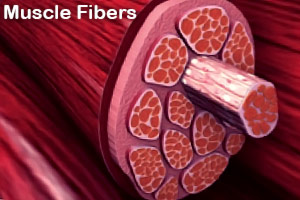The Short term effects of exercise on the Cardiorespiratory system
Cardio Respiratory- Heart and
Breathing
When we exercise, our heart rate
increases because we lose oxygen from our body. When we exercise our heart
beats faster and our body has to meet the demands of the oxygen needed, so we
breathe faster to gain oxygenated blood. Our breathing rate increases so the
blood can be pumped around the body and oxygen and blood is delivered to the
muscles.
Increased breathing rate
When we exercise our body needs
more oxygen so we breath faster and get ride of the bi product carbon dioxide.
We breathe faster because our body does not have enough oxygen needed,
breathing faster gains oxygen to our body and when our body has enough oxygen
our breathing rate will decrease.
When a fit person exercises the
breathing rate is less than a unfit person. The time it takes for a person’s
breathing rate to return to normal is called the recovery time, the fitter you will determine the shorter your recovery time is.
Sweat
production and skin reddening
The reason why our body sweats is
because we need to cool our body down and the reason why our skin reddens is
because the blood reaches the end of our
skin.
Increase blood flow
Oxygen attaches to the blood from
Hemoglobin which then is delivered to the body's muscles, this means that our
body can exercise because of the oxygenated blood in the muscles.

The Short term effects of exercise
on the musculoskeletal system
Every joint in the human body
contains synovial fluid, the fluid is thick and it lubricates the joints
allowing them to move easily. When exercising the synovium produces more
synovial fluid so that is easier for the joints to move. This is like adding
oil to a door hinge, it is lubricated to allow movement .

Increased joint range of movement due to increased in
blood flow and increased muscle temperature.
When exercising the blood flow increases the blood temperature and
muscle temperature so it is easier for the muscles to move and stretch further.
Exercising warms up the body and the blood then the body is more able to
stretch further because the muscles are warmer.
Micro tears in muscle fibres, causing the muscle to rebuild itself and become slightly bigger and stronger
When we exercise, our muscles have
micro fibres which tear and when stretching and lifting they tear and rebuild
back bigger and stronger. Weight lifting is the best way to tear the micro
fibres however running and walking can tear the fibres. You should not work out
on the same muscles too often because there will be no time for rebuild and
growth.

Exercise encourages new bone
formation
Diet and exercise makes our bones
stronger they prevent getting osteoporosis when older our bones need calcium to
be stronger and bigger.
Doing weight exercises will help
you to not get Osteoporosis which is a bone disease the bones that need the most
exercise are the long bones which are the arm and leg bones.
Increase
metabolic activity
No comments:
Post a Comment